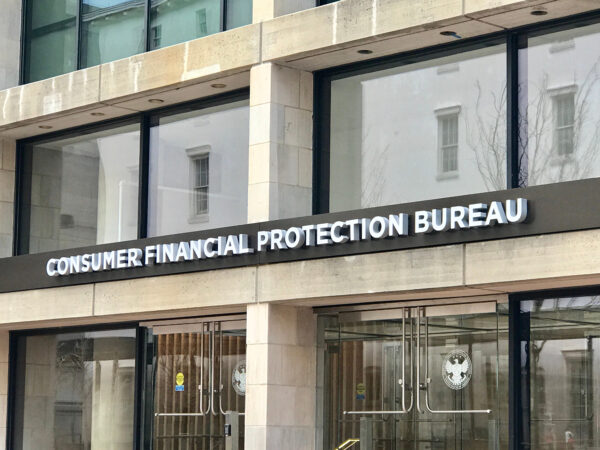By Sophia Huang, Advocacy & Outreach Associate

As discussed in Part I, a slate of recently introduced bills seek to alter the structure of the Consumer Financial Protection Bureau (CFPB) and limit its existing authorities. These changes would weaken the CFPB, putting millions of consumers and the security of the American financial system at risk of another 2008-style collapse. The bills discussed below would introduce new procedural roadblocks to slow down the bureau’s activity. This includes The Rectifying UDAAP Act, the Civil Investigative Demand Reform Act of 2025, the Transparency in CFPB Cost-Benefit Analysis Act, and the Making the CFPB Accountable to Small Businesses Act of 2025.
Since its establishment in 2011, the CFPB has returned over $21 billion to consumers and saved us countless more through its proactive regulation and guidance. If any of these bills pass, the CFPB will not be able to operate as effectively as it has these past 14 years.
Bill would undermine CFPB’s work to stop abusive financial practices
When Congress passed the Consumer Financial Protection Act (CFPA) of 2010, it recognized that previous standards prohibiting unfair and deceptive acts and practices were insufficient to protect consumers in the modern consumer finance marketplace, so it added a prohibition on abusive conduct for the CFPB to address and aim to eliminate.
But some politicians seek to undercut the CFPB’s ability to rein in abusive practices. The Rectifying UDAAP Act would impose numerous hurdles for the CFPB to jump through before it can hold financial institutions accountable, including restricting the CFPB’s interpretation of “abusive act or practice.”
The power to pursue abusive practices has been key to many CFPB enforcement actions that have returned millions to harmed consumers. For example, the CFPB sued Wells Fargo over its infamous fake account scandal. The CFPB charged Wells Fargo with illegally opening millions of unauthorized deposit and credit card accounts in the names of customers to rack up fees. The CFPB found these actions abusive and ordered the bank to pay full restitution to consumers as well as $100 million in civil penalties.
The bill would add unnecessary hurdles for the CFPB to do its job, including impractical requirements regarding the state of mind of the entities and the likely level of consumer harm. If passed, this bill would make it much more difficult for the CFPB to declare any act or practice to be abusive under the CFPA. Under the bill, many CFPB enforcement cases, which provided relief to thousands of harmed bank and lending customers, would have been virtually impossible to prove.
In a move that is paradoxical on its face, the Rectifying UDAAP Act would also prevent the CFPB from pursuing enforcement against discrimination as an unfair, deceptive, or abusive act or practice. By codifying this restriction, the bill would solidify enforcement gaps around discriminatory conduct, such as when a financial entity denies a consumer’s application to open a deposit account due to their race. While such an act is no doubt discriminatory, it is not covered by anti-discrimination statutes like the Equal Credit Opportunity Act.
This bill would also establish more hurdles for the CFPB’s enforcement work that will lead to delays in relief for harmed consumers. Among them, is a requirement for the CFPB to give entities notice of actions against them. In some instances, the CFPB would be prevented from pursuing certain cases or remedies altogether. These restrictions on the CFPB’s authority would obstruct the agency’s effectiveness and give lawbreaking companies room to worm their way out of accountability to consumers.
Civil Investigative Demand Reform Act would make it easier for bad actors to hide wrongdoing
The Civil Investigative Demand Reform Act, would limit when the CFPB can issue a civil investigative demand (CID) to a company and allow companies that receive a CID to petition to set aside or modify a demand that they believe is overly burdensome. CIDs are a powerful discovery tool and a crucial part of what makes the CFPB’s law enforcement so effective. By issuing CIDs, the CFPB can obtain crucial evidence from suspected bad actors to form the basis of its enforcement actions.
Under the bill, the CFPB would only be able to able issue CIDs within six years of a violation of law. That six-year time limit sets an unofficial statute of limitations that makes it more difficult for the CFPB to obtain information on misconduct that took place more than six years prior but was discovered recently and patterns of wrongdoing that have lasted for more than six years. As second procedural hurdle in the bill would require the bureau to conduct additional investigations before issuing a CID. And another provision would open more opportunities for entities to drag out an investigation and avoid compliance with bad-faith inquiries or petitions to set aside or modify CIDS on grounds that the requests are too “burdensome.”
Financial institutions have been able to delay and avoid compliance with CIDs without the extra hurdles in the bill. The Inspector General for the Federal Reserve System noted in a report that in one investigation, one entity petitioned to set aside a CID which resulted in a delay in enforcement of approximately 278 days. The CFPB has also filed petitions to enforce CIDs against entities that failed to comply. In one case against Block, Inc., the operator of payment services Square and Cash App, the CFPB accused the company of “slow-walking” its response to a CID and dragging out the process for two years. Ultimately, the CFPB found that Block had failed to adequately safeguard Cash App users from fraud and ordered it to pay $175 million in restitution and penalties. Companies that are potentially harming consumers on a large scale should not have increased opportunities to delay accountability.
Duplicative “cost-benefit analysis” and other unnecessary hurdles could grind rulemaking to a halt
Rulemaking is a deliberate process with many procedural requirements that agencies must follow. The Transparency in CFPB Cost-Benefit Analysis Act and the Making the CFPB Accountable to Small Businesses Act of 2025 would make that process even more burdensome for the CFPB by adding unnecessary and duplicative new hurdles.
Under the Consumer Financial Protection Act, the CFPB is required to consider “the potential benefits and costs to consumers and covered persons, including the potential reduction of access by consumers to consumer financial products or services resulting from such rule.” And the CFPB explicitly addresses how it has weighed potential costs and benefits in each of its final rules, including its analysis of any data provided by interested parties. Despite this, the Transparency in CFPB Cost-Benefit Analysis Act seeks to duplicate this requirement and specify that the CFPB must conduct a “quantitative and qualitative assessment of all anticipated direct and indirect costs and benefits of the proposed regulation.” The CFPB would also be required to identify alternatives to the regulation and conduct a qualitative and quantitative cost-benefit of those alternatives as well.
As scholars have explained, quantitative cost-benefit analysis is typically impractical for financial regulators due to the complexity and interconnectedness of the financial markets. Additionally, indirect costs and benefits, such as time spent by a consumer attempting to remedy a harm or psychological distress, are difficult to quantify without further research and data collection. As a result, the type of cost-benefit analysis that the bill mandates can itself become a significant cost to the CFPB. Agency resources that could be better spent elsewhere would be used to execute a superfluous analysis with little benefit. This bill and others would also insert additional hurdles pertaining to the costs on small businesses.
Under the Making the CFPB Accountable to Small Businesses Act, the CFPB would be required to consider the impact of any new rules on small entities in accordance with the Small Business Regulatory Enforcement Fairness Act (SBREFA) and provide detailed justifications when rules are not tailored to small businesses. Once again, these requirements are duplicative, burdensome, and would do little except to prolong the rulemaking process further. The CFPB already considers the impacts of its rules on small businesses and is one of only three agencies that must preview its proposed rules that would have a significant impact on small entities to a panel of small business representatives before they are even released for public comments. For rules that are not subject to SBREFA panel review because they do not have a significant impact on small entities, it would not provide additional benefit for the CFPB to expend resources tailoring the rules or providing justifications.
Over the past 14 years, the CFPB has proven itself to be a highly effective regulator that responds efficiently to threats of consumer harm and the rapidly changing financial marketplace. Slowing it down unnecessary with red tape, as this slate of bills would do, means more resources will go towards justifying the CFPB’s actions rather than protecting consumers. We cannot return to the regulatory paralysis that led to millions of consumers losing their jobs and life savings during the financial crisis. Lawmakers should reject any bills that undermine the CFPB’s independence, change its structure, or create new roadblocks for it.
NACA's
Practice Areas
Browse Our
Attorney Directory
Press Inquiries
For press inquiries, contact Ira Rheingold.
To be added to our press/media mailing list, please contact Christine Hines.

